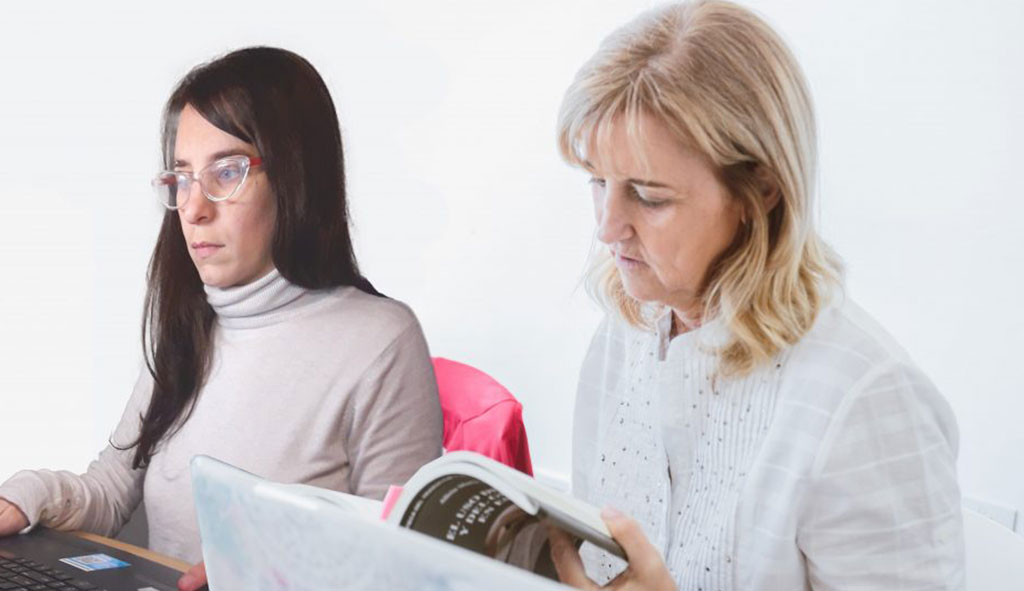Recently, two of our hard-working teammates, Silvina and Celeste, took on an intensive training course regarding the translation of clinical trial protocols. The course was taught by Pablo Mugüerza, a very prestigious medical translator, and the course load consisted of about 40 hours worth of material. The material covers topics such as medical terminology and theory. There were also opportunities to practice analyzing different translations. We sat down with our two stellar translators to get their takeaways on the training. They reflected on what they learned and how their new knowledge base will help them to move forward.
What is a Clinical Trial Protocol?

The focus of their training was understanding and enacting the correct translation of clinical trial protocols. Celeste explains a clinical trial protocol is an “informative document for the investigators that will conduct the trial. It explains everything that is going to happen, as well as what they should and shouldn’t do.” This document also informs the investigator how the patient will be treated, and what both the benefits and risks are of that medical treatment. She continued to break down what a protocol entails, “It explains the design of the trial, how long it will take, where it will be conducted, what medications are being studied, and what is expected of the trial. It also states the purpose of the trial and what they are trying to discover.”
How Was the Training Structured?

For each of the four weeks of the course, the students covered a module that consisted of theory and 25 new terms related to clinical trials. They also tackled translation exercises. According to Silvina, at the end of each module, “There was an exercise, a translation test for us to do. We also had a recap activity to review the terms.” Their weekly assignments were just the beginning. Silvina noted that each week they took tests to confirm they understood and retained the knowledge they learned. There was also a final exam at the end of the training, which they both passed with flying colors. This was an “online test that consisted of fifteen questions about the terms we had learned. And the last week, we also had a final exam. So it was hard work,” Silvina said.
What Were the Objectives of the Course?

The first goal of the course was to gain a deeper view of what a protocol and a clinical trial is. Alongside learning 100 new pieces of terminology and how to properly approach the translation of clinical trials protocols.“My expectations were to learn more terminology because there is so much information required to specialize in that field. You need to be able to really understand what you have to translate into Spanish,” said Celeste.
What Were the Takeaways?
Both Silvina and Celeste found that this training served as a reminder of the value of education. In a field as critical and challenging as medical translation, it’s key to stay on top of vocabulary, medical advances, and best practices. Silvina greatly appreciates Terra Translation’s commitment to education and training. “I think that training is essential nowadays. In many professions, not only in translation. Because everything is changing and advancing so fast. We must keep abreast of the latest research in this field,” Silvina said.
Celeste also believes adaptability is vital, “You have to be flexible and open-minded. You need to know that education is never going to end. The great thing about being a translator is that you are always learning, it never ends.”









